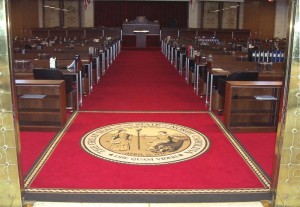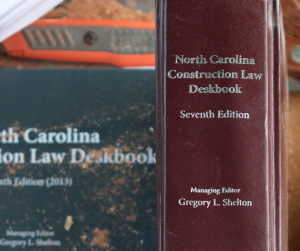 By: Gregory L. Shelton
By: Gregory L. Shelton
(704) 940-9012
Part I of this series focused on the issues leading up to the introduction of HB 489. Now we will look at the nuts and bolts.
The primary motivation behind HB 489 is to provide the world with notice of potential lien claims. If HB 489 in its present form becomes law, subcontractors will be required to let the owner know early on that the subcontractor is performing work on the project. The notice is given in a document appropriately called the “Notice to Owner.”
If the subcontractor serves the owner with the Notice to Owner within 30 days of its first furnishing, the subcontractor’s lien will relate back to when the Notice of Commencement was filed by the owner. If the subcontractor fails to timely serve the Notice to Owner, it may still file and serve a Notice to Owner, but the claim of lien on real property will not include a lien for the value of any unpaid labor, materials or equipment furnished more than 30 days before the filing and service of the Notice to Owner. If, however, a Notice to Owner is filed no more than 5 days before the date that a deed (sale) or a deed of trust (mortgage) is recorded for the same property, the Claims of Lien on Real Property will be “conclusively presumed to be inferior in time and right to the rights created by the Deed and/or Deed of Trust; unless a contrary intention is expressed within the terms of the Deed and/or Deed of Trust.”
The Notice to Owner requirement would place an administrative burden on subcontractors that they currently do not bear. Many subcontractors object to having to bear this additional burden to preserve rights they already enjoy. Other subcontractors have told me that the Notice to Owner is a net benefit, because it gives them an excuse to make contact with the owner without offending their customer. Industry associations may split on this point, leaving it to the individual companies to make their case for or against the proposed revisions.
The big question right now is whether the Notice to Owner would also be filed with the Clerk of Court. Subcontractors are comfortable with mailing documents, but not necessarily making a trip to the courthouse to file a legal document. Moreover, the court administrators are concerned with the flood of paperwork and the lack of funding to handle their new task. The filing issue has become a major sticking point with HB 489.
Chances are that HB 489 will not come up for vote this year. Instead, the bill is likely to be forwarded to a study committee for further evaluation.

